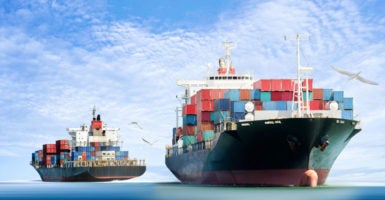The recent presidential election has sparked a debate about international trade. Many politicians, policymakers, and media outlets seem to be unsure about whether trade is good or bad. It seems everyone has an opinion about trade.
But what do the experts say?
N. Gregory Mankiw, the Robert M. Beren Professor of Economics at Harvard University, observed: “Economists are famous for disagreeing with one another … But economists reach near unanimity on some topics, including international trade.”
Earlier this month, a panel of 51 leading economists of differing ideological views were asked to respond to this statement: “Adding new or higher import duties on products such as air conditioners, cars, and cookies—to encourage producers to make them in the U.S.—would be a good idea.”
Of those economists, 100 percent said they disagreed with the statement. Economists understand that trade provides a great benefit to Americans.
Trade means lower prices for products ranging from T-shirts to televisions, increasing families’ disposable incomes. Trade also results in the creation of new, better jobs for U.S. workers. This results in a boost in overall well-being and quality of life.
The realization that people benefit from free trade is not new. Adam Smith, the father of modern economic thought, explained that “it is the maxim of every prudent master of a family never to attempt to make at home what it will cost him more to make than to buy.”
Looking around the world, there is a striking correlation between the freedom to trade and economic prosperity. The Index of Economic Freedom, published by The Heritage Foundation, provides data that continue to show a strong correlation between trade freedom and economic prosperity.
Americans win when the government removes barriers to all kinds of freedom—including the freedom to trade.





























